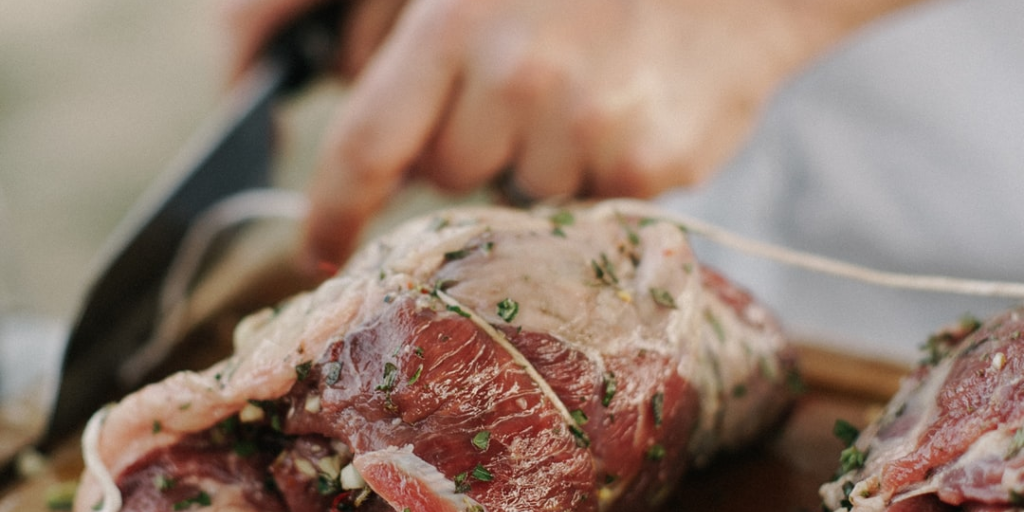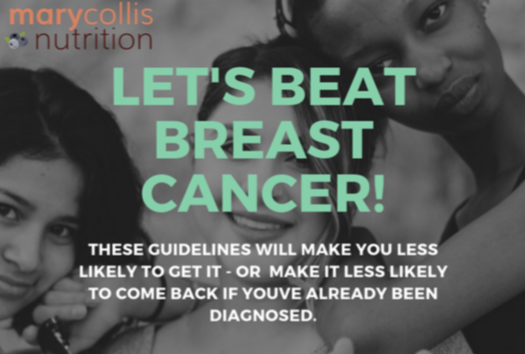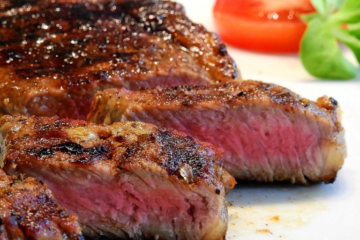The ketogenic (or ‘keto’) diet is smoking hot right now.
- Fast weight loss (in the early stages)
- feeling good from no processed foods and
- eating all your favourite celebratory foods every day – several times a day –
- what’s not to like? And hopefully it is good for cancer too.
What do the facts say though about its benefit for cancer?
What is the ketogenic diet?
It is a diet in which 70 – 80% of the diet is from fat. Most of these fats are animal fats, but also include coconut oil, avocados and olive oil. Simple maths shows that if this much of the diet is fat, then both protein and carbohydrates combined must comprise only 20 – 30% of the diet. In other words, a ketogenic diet is a low carbohydrate diet.
What is a carbohydrate?
It is a food which only contains 3 types of atoms. The word tells us what they are: ‘carbo’ – is Carbon; ‘hydrate’ means water, which is made up of 2 hydrogen atoms and one oxygen atom (H2O). So a carbohydrate is a food which contains only carbon, hydrogen and oxygen atoms.
These foods are found primarily in the plant kingdom – the carbon coming from the earth and the water from rain. The only food in the animal kingdom with substantial carbohydrate is dairy food, because the cow got the carbohydrate molecules from the grass, a plant.
What is the attraction of this high fat ketogenic diet?
Part of the attraction of this diet is that it tastes good. It is rich and satiating. It does not ask much self-denial of foods one likes. Secondly, people who adopt it lose weight fast in most cases. See this post <here> to see the reason why this rapid weight loss occurs.
Note that this weight loss is usually short-lived. Countless people come into my clinic and cite enormous weight loss achieved several years ago on this diet. In all the cases I see, it is all back on now – and more. This is the usual scenario with these diets as verified by numerous controlled trial studies. Don’t be sucked in by the short term marketing stats.

The problem with a high fat diet
To eat a low carbohydrate diet, such as the ketogenic diet, you are, essentially, limiting plant foods.
The problem with this is that the highest micronutrient sources in the food world are plants. Micronutrients are essential for keeping our bodies healthy. Cutting out plants which are carbohydrates means reducing micronutrients. Nutritional health depends upon the number of micronutrients consumed, and animal foods have very few compared to plant foods.
This high fat, low vegetable diet flies in the face of the preponderance of nutritional research for over 60 years.
Eating a ketogenic diet is risky healthwise, largely because it removes high nutrient plant foods. However, eating all this fat is unhealthy in itself.
- The high fat ketogenic diet raises IGF-1, a major cancer risk.
- It also increases insulin resistance long term (although short term, it improves it by removing any insulin challenges). Insulin resistance is another cancer risk.

What does the research show?
There are many studies testing the ketogenic diet and cancer. Some studies appear, at first reading, to have been successful:
- Mice on ketogenic diets stayed alive for 20 days longer than the control mice not on the ketogenic diet – but they still died of cancer.
- A case study in a well-known book promoting the ketogenic diet for cancer, cites the case of one individual with Smouldering Multiple Myeloma (SMM) (a blood cancer). The cancer failed to progress further over two years on a ketogenic diet. SMM can normally ‘smoulder’ for up to 25 years before progressing to full blown multiple myeloma – so managing to keep it ‘smouldering’ for two years hardly seems a good ketogenic-diet promotion. There is no evidence that it would have progressed even if NOT on the high fat diet.

Most studies show little promise, however, once you look at the details. Some have allowed rats to live another month or two – and then they still died of cancer. Others slowed cancer growth – for 5 – 6 weeks – then it took off again at a faster pace.
At least four 2017 & 2018 studies have shown a high fat diet accelerates the spread of cancer. This is because cancer cells easily adapt to use fat for fuel when carbohydrate is no longer available.
Tracking 49,000 post menopausal US women over 40 cancer clinics, indicated that those eating a low-fat diet lived ten years longer. They also tended to develop less aggressive forms of breast cancer than those eating high fat diets. Low fat means less than 20% of their calories came from fat.
Survival for low fat eaters was 22% higher than the high fat eaters. (You can track your fat intake on a calorie App such as ‘MyFitnessPal’).
Researchers have also found that low-carb dieters have a 51% increased risk of dying from heart disease and a 35% increased risk of dying from cancer, compared to people who ate the most carbohydrates. So eating a high fat (low-carb) diet has bad outcomes for other diseases also.
You can read more about the link between low carbohydrate diets, such as the ketogenic diet, and increased cancer risk <here>.
Summing it up
There is only one way that a ketogenic diet appears to be able to reduce tumours. They must sustain a calorie deficit so large that the person must remain near starvation for any benefit. It’s been done with rats, but is not considered ethical for human research.
Limiting plant foods which contain so many natural anti-cancer chemicals and concentrating on the type of fats which we know are highly inflammatory to the body – makes no sense for cancer prevention.
If you would like my free 4 part checklist on the 4 main things to do to reduce your cancer risk, please fill out the pop up form on this page.



0 Comments